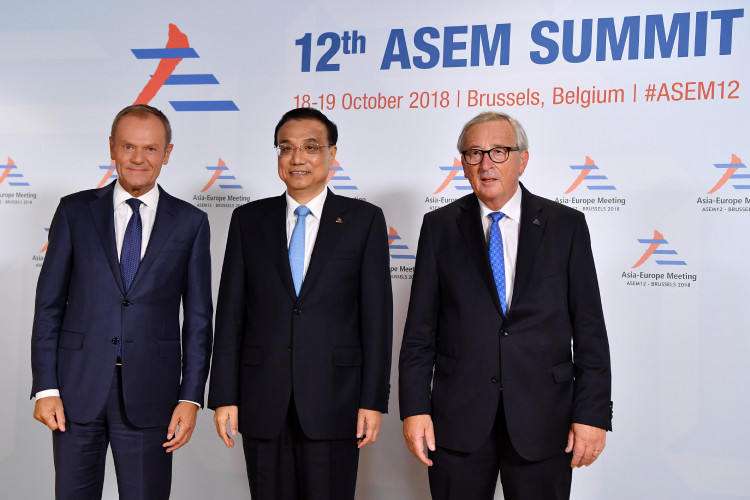The European Union is now setting its eyes to Asia as it looks for support in upholding the global free trade, manage the failing Iranian nuclear deal, as well as mitigating the effects of climate change during the recently-held regional summit on Thursday, in Brussels, which saw the participation of high ranking leaders from China, Japan, and Russia. This would be EU's move to offset the burgeoning protectionist and unilateralist ideals of the United States under the Donald Trump administration.
Leaders from the bloc, including officials from Switzerland and Norway warmly, received the 21 Asian counterparts including China's own Premier Li Keqiang in the ASEM (Asia-Europe Meeting) leaders' summit in Brussels, Belgium on Wednesday.
According to the report from Reuters, the gathering of a total of 51 leaders and officials was aimed to show support for the World Trade Organisation (WTO).
WTO recently had a row with Trump, with the latter threatening to quit the organization if it continues to meddle on its global trade affairs in relation to its political measures.
The event, as cited by the news agency in a draft communiqué, also convened the common consensus about the profound alarm caused by climate change.
EU Foreign Policy Chief, Federica Mogherini, clarified that the convention wasn't necessarily a sort of anti-Trump movement. According to the Italian official, it's not in the interested of the Union to organize meetings just because they are against someone.
However, Malaysian Deputy Prime Minister Wan Azizah didn't seem to share the same sentiment with Mogherini. For the PM, Trump's uncalled for actions such as steep trade tariffs have, in a way, pushed the EU and Asia to huddle together.
According to Azizah, it is of the best interest of EU as well as of Asia to help each other become free of the influences of Trump's unilateralist and protectionist trade policies.
Yet another priority of the ASEM summit is the failing Iran nuclear pact. As indicated in the report, the joint international committee will look to bolster the deal which Tehran signed along with other global powers in 2015.
Washington had recently withdrawn its consent to the agreement back in May in light of intelligence reports saying that Iran has continued to establish and develop its weapons program in the region.
China-EU
Meanwhile, the European Commission President Jean-Claude Juncker is slated to discuss subsidies on steel production and consumption with the Chinese Premier this Friday.
China happens to produce and consume half of the world's steel supply. The country has since cut some 220 million tonnes of capacity in the early parts of 2016. The EU intends to influence China in cutting more, as well as to issue removal of subsidies.






